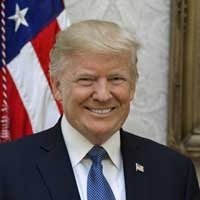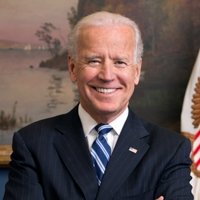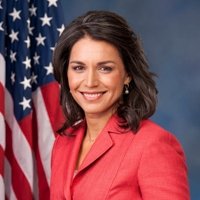Big Tech in 2020: Political Advertising
How the Presidential Candidates Approach Regulating Political Advertising
In the 2016 Russian efforts to influence the American election, disinformation spread through political advertising. In the leadup to the 2020 election, social media platforms have wrestled with how to respond to false information in political ads. How should online political advertising be regulated, if at all?
Republican Candidates

President Donald Trump
President Trump generally supports the free and open use of political advertising on social media platforms. He is against content curation and vetting and has directed his "administration to explore all regulatory and legislative solutions to protect free speech and the free-speech rights of all Americans." When Twitter announced its ban on political advertising, Trump campaign manager Brad Parscale said in a statement: "This is yet another attempt to silence conservatives, since Twitter knows President Trump has the most sophisticated online program ever known."
No known position: Former Governor Bill Weld
Democratic Candidates

Former Vice President Joe Biden
The Biden Campaign has acknowledged that it is a platform's prerogative to set a policy that allows political candidates to purchase ads containing falsehoods, as Facebook has done. However, in October 2019 the campaign sent a letter to Facebook requesting that the company reject an ad placed by a pro-Trump super PAC that included falsehoods about Vice President Biden. The campaign described Facebook’s advertising services as "the tools to target certain segments of the population with lies."
Biden proposes a law that would require "any group that advocates for or against candidates for federal office in its ads or communications must disclose its contributors....This law will require all online ads, how they're targeted, and who paid for them to be posted by the groups to a public database on a new one-stop website, ethics.gov -- so no one can target voters with misinformation without attracting media or political attention."

Representative Tulsi Gabbard
Gabbard is concerned with censorship by the tech industry, recently claiming in a lawsuit that Google had blocked her campaign’s ad account. Her complaint says: “Google supports viewpoints, political causes, and candidates that favor its policy positions over those that do not” and “has manipulated its search advertising, and likely its email filtering, to disfavor Gabbard.”